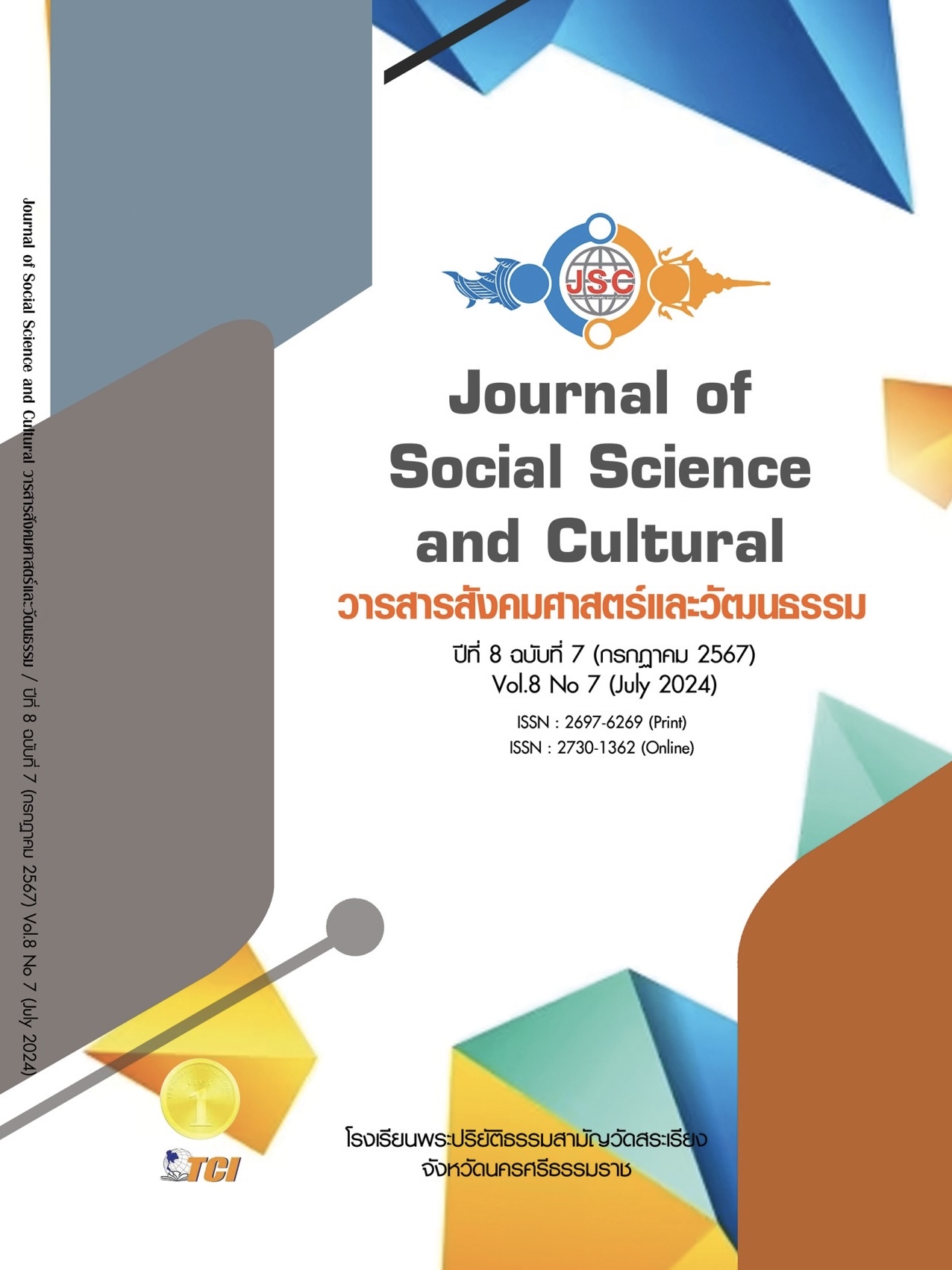RESEARCH SYNTHESIS IN SOCIAL SCIENCES, HUMANITIES AND FINE ARTS OF THAMMASAT UNIVERSITY DURING 2014 - 2021
Main Article Content
Abstract
The synthesis of research in the social sciences, humanities, and fine arts of Thammasat University between 2013 and 2021 aims to survey the amount and synthesize the types of research in the social sciences, humanities, and fine arts of faculty and researchers affiliated with faculties, colleges, and institutes. Various things lead to the discovery of more clear knowledge. I have seen the research gaps that do not respond to the needs of strategic issues at the international, national, and university levels. This leads to setting the direction of research studies and research development in the next phase by collecting information from The Research Administration Division and Thammasat University Research and Consulting Institute mainly and additional information from 20 faculties, colleges, and institutes found that there are 1,660 ongoing research works, averaging 180 - 220 subjects per year. The faculty with the most research work is Commerce and Accountancy, at 32.17 percent, followed by Coming down to the Faculty of Journalism and Mass Media at 9.34 percent, Faculty of Economics at 8.91 percent, Faculty of Political Science at 8.80 percent, respectively, which is in the same direction as the type of research, with Economics having the most at 41.08 percent and Information Technology and Communication Arts at 16.45 percent. and the field of political science and public administration, 8.80 percent. Most of the work is consistent with the 20 - year national strategy (2018 - 2037) in terms of security, balancing, and developing the public administration system with issues of political science and law. and Communication Arts and Mass Communication Creating competitiveness through economic issues but some areas are still in small numbers, such as sociology with 1.39 percent, liberal arts with 1.14 percent, including psychology, education, social geography, and economics. and other humanities account for less than 1 percent.
Article Details
References
นงลักษณ์ วิรัชชัย. (2542). การวิเคราะห์อภิมาน Meta - Analysis. กรุงเทพมหานคร: จุฬาลงกรณ์มหาวิทยาลัย. พระราชบัญญัติมหาวิทยาลัยธรรมศาสตร์ พ.ศ. 2558. (2558). ราชกิจจานุเบกษา เล่ม 132 ตอนที่ 66 ก (17 กรกฎาคม 2558).
รัชพล แย้มกลีบ. (2565). ทศวรรษไทยคดี: สถานภาพทางวิชาการและองค์ความรู้. วารสารไทยคดีศึกษา, 19(2), 287-337.
วิสุทธิ์ เวชวราภรณ์. (2567). คุณค่าของความรู้ที่หายไปในระบบวิจัยด้านสังคมศาสตร์. ศูนย์มานุษยวิทยาสิรินธร (องค์การมหาชน). เรียกใช้เมื่อ 16 มีนาคม 2567 จาก https://www.sac.or.th/portal/th/article/detail/559
สำนักงานคณะกรรมการพัฒนาการเศรษฐกิจและสังคมแห่งชาติ. (2562). ยุทธศาสตร์ชาติ ระยะ 20 ปี (พ.ศ. 2561-2580). (พิมพ์ครั้งที่ 2). กรุงเทพมหานคร: สำนักงานเลขานุการของคณะกรรมการยุทธศาสตร์ชาติ.
สำนักงานคณะกรรมการวิจัยแห่งชาติ. (2560). คู่มือการจัดทำงบประมาณในลักษณะบูรณาการ ด้านการส่งเสริมการวิจัยและพัฒนา ประจำปีงบประมาณ พ.ศ. 2560. กรุงเทพมหานคร: สำนักงานคณะกรรมการวิจัยแห่งชาติ.
สำนักงานคณะกรรมการวิจัยแห่งชาติ. (2561). คู่มือการตรวจสอบและประเมินผลข้อเสนอการวิจัยของหน่วยงานภาครัฐที่เสนอของบประมาณ ประจำปีงบประมาณ พ.ศ. 2561 ตามมติคณะรัฐมนตรี. กรุงเทพมหานคร: สำนักงานคณะกรรมการวิจัยแห่งชาติ.
สำนักงานสภานโยบายการอุดมศึกษา วิทยาศาสตร์ วิจัยและนวัตกรรมแห่งชาติ. (2562). นโยบายการยกระดับคุณภาพและสมรรถภาพของมนุษย์ในศตวรรษที่ 21 ด้วยมนุษยศาสตร์ สังคมศาสตร์ และศิลปกรรมศาสตร์ ด้วยมนุษยศาสตร์ สังคมศาสตร์ และศิลปกรรมศาสตร์. เรียกใช้เมื่อ 16 มีนาคม 2565 จาก https://www.nxpo.or.th/B/social-and-humanity-frontier-research/
เสาวธาร โพธิ์กลัด. (2560). การสังเคราะห์งานวิจัยด้านการบริหารงานยุติธรรม. ใน รายงานสืบเนื่องการสัมมนาวิชาการ (Proceedings) ระดับบัณฑิตศึกษาฯ ครั้งที่ 7. คณะสังคมสงเคราะห์ศาสตร์ มหาวิทยาลัยธรรมศาสตร์.
อุทัย ดุลยเกษม. (2561). อนาคตของมนุษยศาสตร์และสังคมศาสตร์ในสังคมไทย. วารสารมนุษยศาสตร์และสังคมศาสตร์ มหาวิทยาลัยราชภัฏสุราษฎร์ธานี, 10(1), 1-18.
Chalmers, L., et al. (2002). A brief history of research synthesis. Eval Health Prof, 25(1), 12-37.
Frascati Manual. (2002). Proposed Standard Practice for Surveys on Research and Experimental Development. Paris: OECD Publications Service.


